How to get a faculty position
Almost 70 D-INFK researchers and students attended a talk and Q&A session on October 28 to learn about the complex process of applying for – and getting – faculty positions.
How does a young researcher go from a position as a doctoral student or a postdoc to becoming an assistant professor? Almost 70 students and scientific staff members came together on October 28 to hear postdoc Manuel Rigger, Assistant Professor Shweta Shinde and Professor Emo Welzl shed light on this process.
The event, titled “How to get a faculty position”, was part of D-INFK’s 40th anniversary celebrations and took place in the food&lab restaurant in the CAB building, allowing the guests to follow up the presentation and panel with a cocktail reception and individual discussions.
The main speaker of the evening was Manuel Rigger, currently still a postdoctoral researcher in the Advanced Software Technologies Lab at D-INFK. Having gone through the complex and time-consuming process of looking for a faculty position himself, he decided to help other young researchers. Rigger interviewed 21 young faculty members from a variety of universities about their individual paths to an assistant professorship. The interview series, called Getting Academic Positions (GAP) is available on YouTube.

During his talk on October 28, Rigger sought to convey what he learned to the audience: from the general application process – which differs considerably from what is most commonly expected in industry – to tips and tricks for all stages of applying. “There are some resources online”, Rigger states, “but many of them are tailored to US universities and might not necessarily apply in Europe or Asia.” This inspired him to create the GAP interviews to reflect a large variety of processes, experiences and viewpoints. Rigger himself has accepted a position as a tenure-track Assistant Professor at the National University of Singapore (NUS).
In the Q&A after the talk, D-INFK professors Shweta Shinde and Emo Welzl joined Rigger on stage to answer the many questions from the audience. Shweta Shinde is a Tenure Track Assistant Professor and one of the interviewees for the GAP series. She was able to provide insights into her own application process that has led her to ETH Zurich. Emo Welzl showed the other side of the story: the experienced professor has been on a number of hiring committees.
The audience, which ranged from Master’s and even Bachelor’s students to senior researchers, grasped the opportunity to learn more about the complex process of getting a faculty position. Tal Ben-Nun, Senior Scientist at the Scalable Parallel Computing Laboratory, has just begun applying for positions himself. “I will definitely fine-tune my applications based on what I’ve learned today”, he said. “This is a great initiative of Manuel’s, because normally, hardly anyone talks about the application process.”
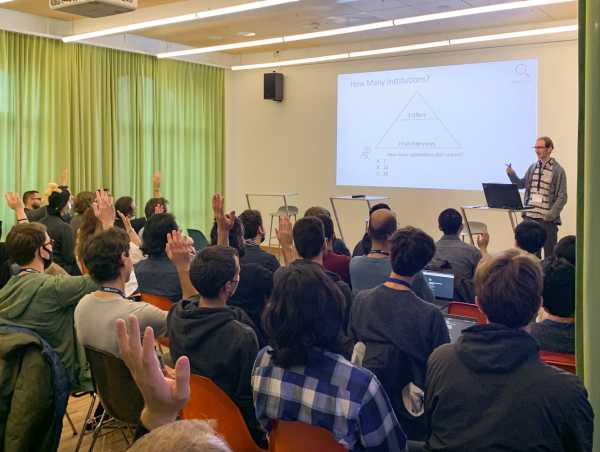
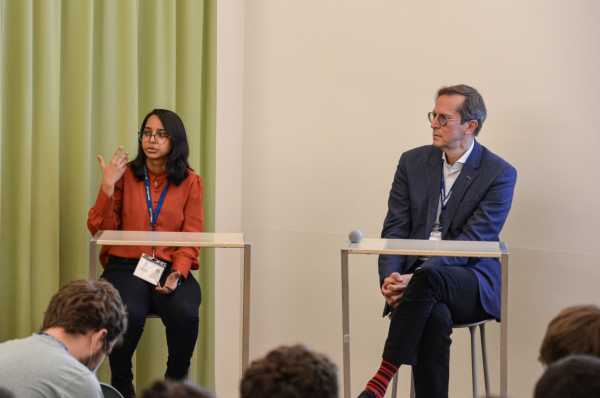
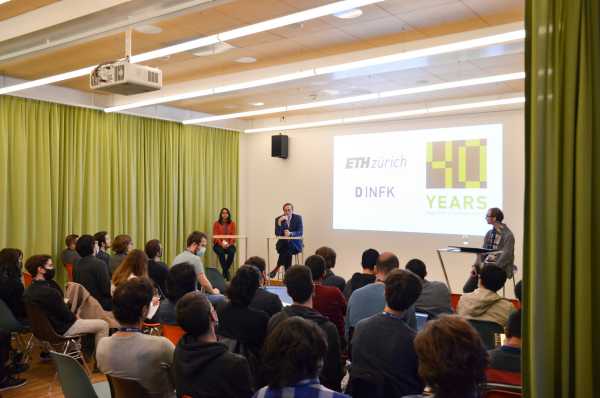
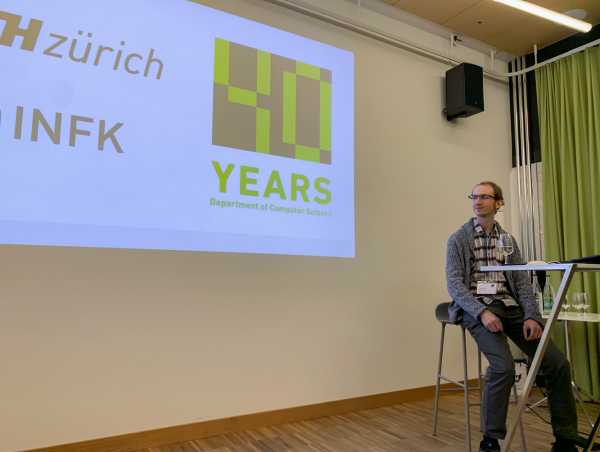
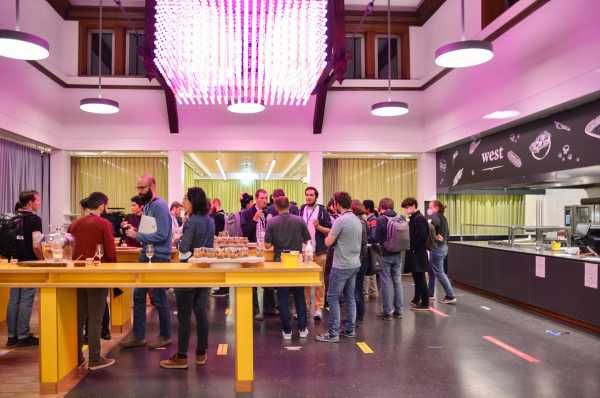
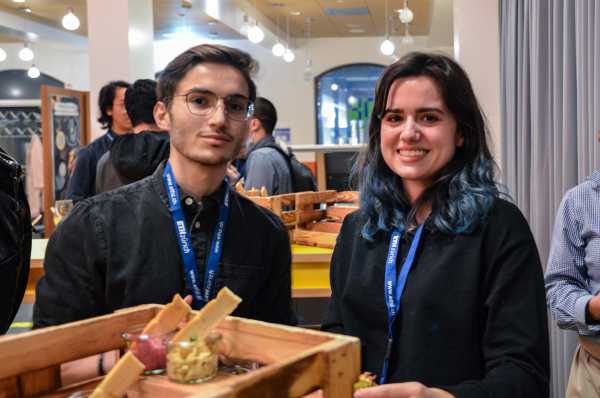
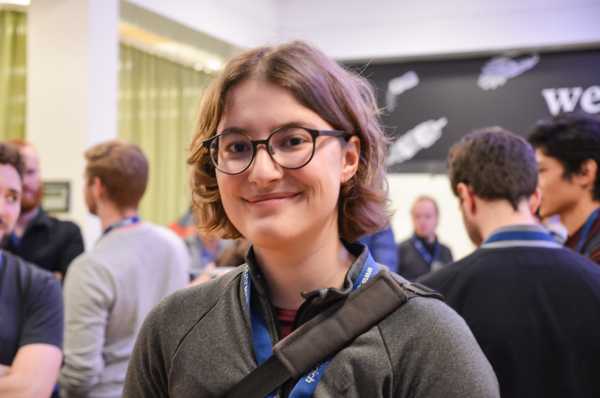
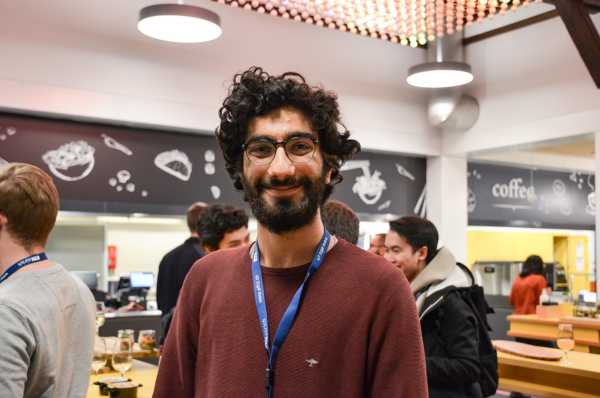
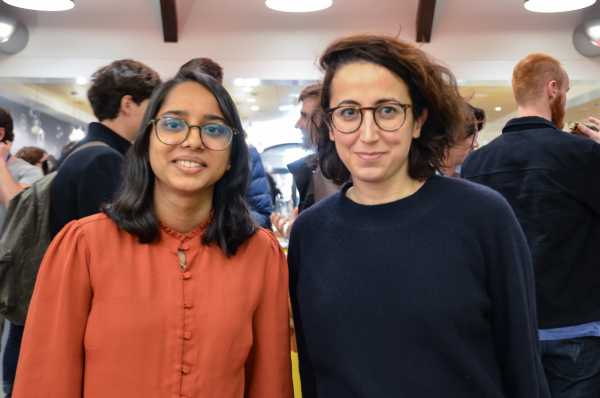
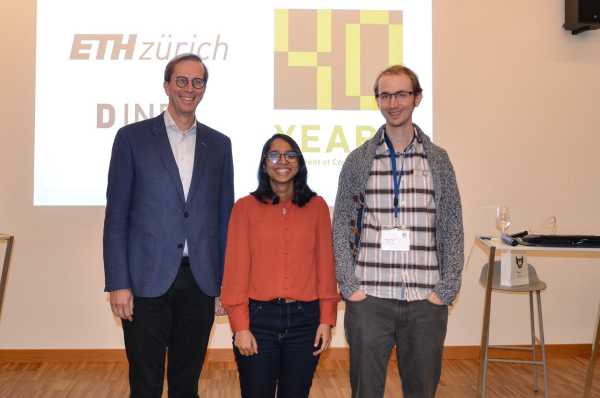
Postdoc Sergey Prokudin has only joined Visual Learning and Geometry Group a year ago and has not fully decided on whether he wants to pursue a professorship yet. “This event helped me to better understand what my options are. I also got some good advice if I should decide to apply.” Doctoral student Mohammad Reza Karimi Jaghargh from the Learning and Adaptive Systems Group, on the other hand, is already fairly certain he wants to pursue an academic career. “This event was great, because when something is hidden, it seems scary. Manuel brought the process out into the open.”
Xenia Hofmeier is still a Master’s student and not at all sure which career path she wants to pursue. Nevertheless, she greatly enjoyed the GAP interview series and the talk based on it. “Right now, I’m very interested in research and I want to do a doctorate”, she says. “But it was very helpful seeing the most important steps to a professorship laid out like that.”
Inviting students, and not just scientific staff, makes sense for events like these, says Anwar Hithnawi. The senior scientist leads the Privacy Preserving Systems Lab and is currently also applying for faculty positions. “It is important that Master’s and doctoral students know this process, as there are things that you can and should think about ahead of time”, she says. “For example, I missed some opportunities to get letter writers because I was unaware that I would need them.”
Photo gallery
You can find more photos from the event here: external page to the gallery.